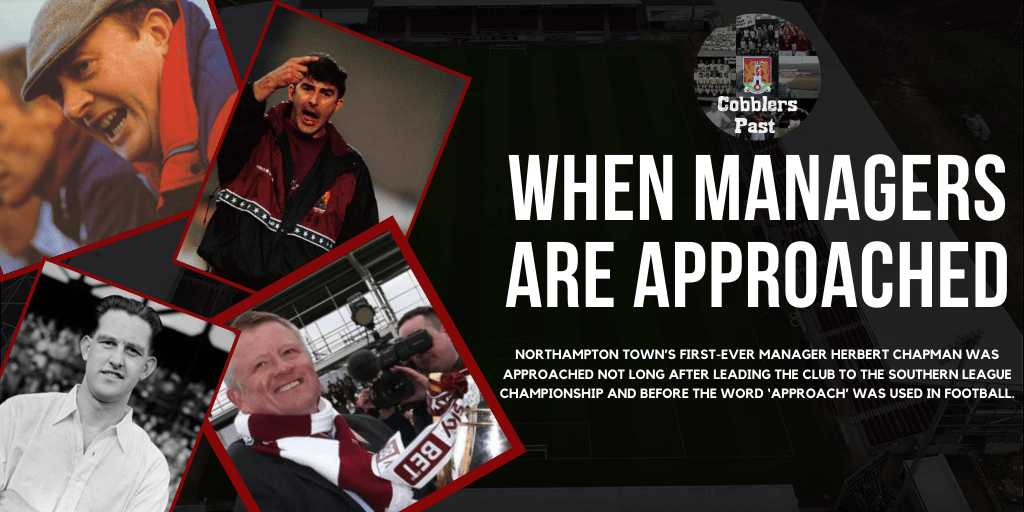Northampton Town’s first-ever manager Herbert Chapman was approached not long after leading the club to the Southern League championship and before the word ‘approach’ was used in football.
Second division Leeds City offered him the chance to manage a league team and he asked the Cobblers ‘please do not try to stop me’.
It was a chance to move closer to his Sheffield birthplace hence he moved. It did not work out as the club were found to have administration problems and was closed down the players sold to make up the deficiency. Of course, he made his name managing Huddersfield and Arsenal.
The next Cobblers manager to find himself ‘wanted’ was Bob Dennison in the mid-1950s. After four years of trying to get the Cobblers out of Division Three South (only 1 club were promoted in those days), he accepted an offer from Middlesbrough who had just been relegated from the first division however in nine seasons at Ayresome Park he failed to get them back into top-flight despite a few ‘flirtations’ with promotion. He was responsible for introducing Brian Clough to the football world.
Dave Bowen, had them queueing up with contracts. Sunderland, Manchester City, Leicester City and the Greek national team were just some of the clubs that wanted him but he had what he wanted managing a club he loved and part-time manager of the Welsh national team.
When Ian Atkins took the Cobblers to two play-off finals interest was shown from different quarters Norwich was one side and Cardiff City another. This caused the Trust chairman Brian Lomax to quote; ‘If the Cardiff chairman is so keen to have Ian as his manager he should join our board!’
Another promotion and another manager in the ‘shop window’ this time Colin Calderwood who had talks with Ipswich and Nottingham Forest before joining the latter who he had played for.
Chris Wilder had taken Oxford back into the league and led the Cobblers to the League 2 championship in some style. Hence it was no surprise that he would create interest from different quarters and it again was from a club who the manager had played for.
It is all a long way from the days when player-manager Phil Chard wanted a ‘consultative manager’ to take control while he was playing, several ‘names’ were approached but all turned it down even though they did not hold a managerial position at the time.
